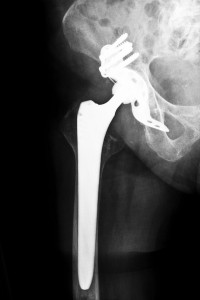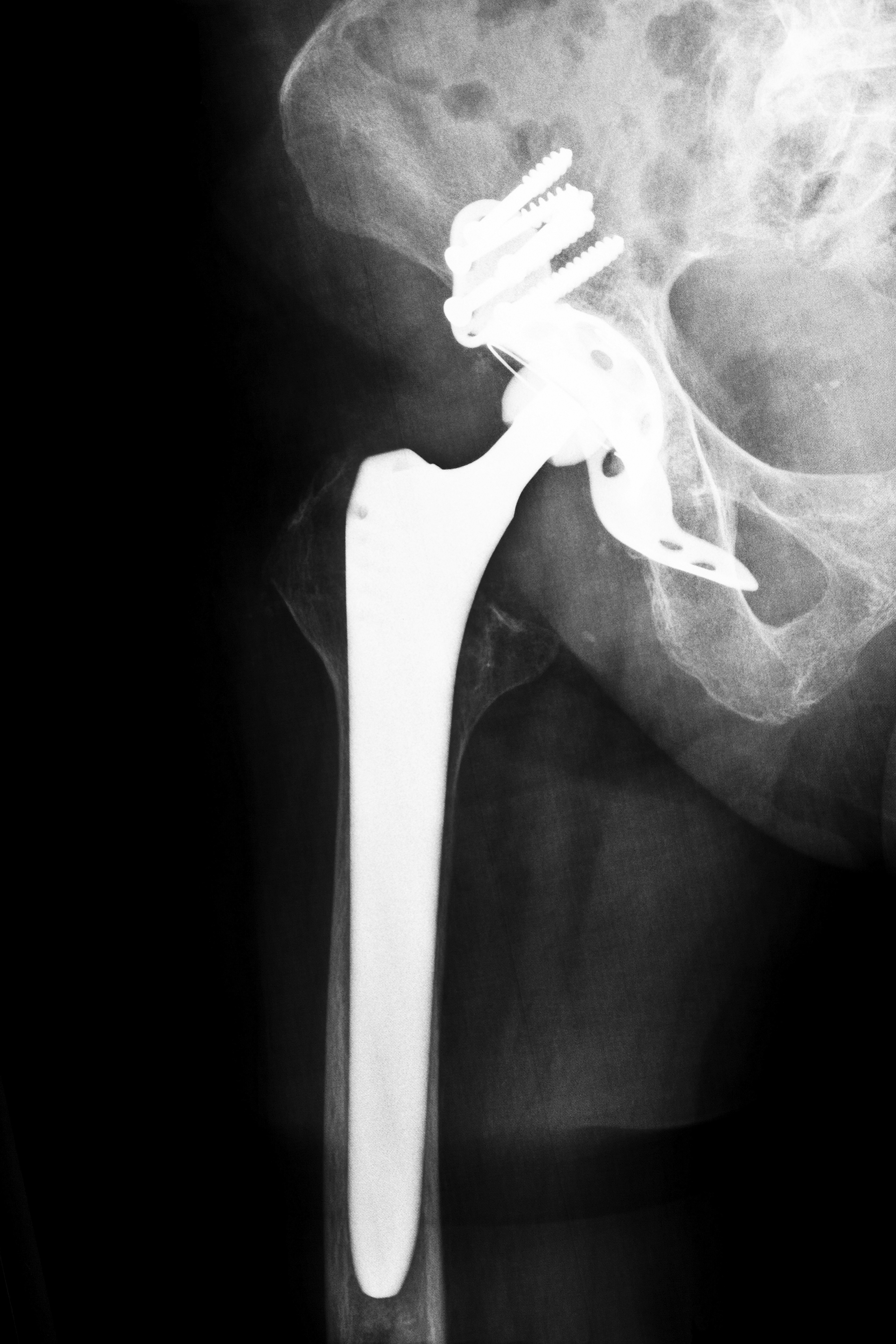 The introduction of new metal on metal hip implants was promised to provide patients with an increase in personal mobility and to minimize the pain associated with hip replacements, but unfortunately it soon became apparent that the metal on metal design could allegedly cause grinding and release of harmful particles into the hip joint and blood stream. Thus numerous hip implant lawsuits have been filed seeking compensation for device failure, joint damage, and metallosis (blood poisoning due to excessive metal content). Several companies are involved in these hip implant lawsuits, and many of them have already reached settlements and have undergone recalls.
The introduction of new metal on metal hip implants was promised to provide patients with an increase in personal mobility and to minimize the pain associated with hip replacements, but unfortunately it soon became apparent that the metal on metal design could allegedly cause grinding and release of harmful particles into the hip joint and blood stream. Thus numerous hip implant lawsuits have been filed seeking compensation for device failure, joint damage, and metallosis (blood poisoning due to excessive metal content). Several companies are involved in these hip implant lawsuits, and many of them have already reached settlements and have undergone recalls.
Depuy and Stryker are the two largest manufacturers facing lawsuits for lack of proper warning of the dangers of hip implants or for device failure and consequent negative side effects. Depuy has already settled some lawsuits involving their ASR device, and reports say that approximately 90% of claimants who required corrective surgery are receiving awards through the settlement. The fate of their Pinnacle hip replacement, however, is still yet to be determined. An important test case is underway in Dallas, and on September 15th, Depuy executives denied from the witness stand the allegations of neglect to properly warn clients of the dangers of their device. Thousands of more cases have been consolidated and are awaiting the results of this first case to gauge the prospects. Stryker Orthopaedics has been facing thousands of hip implant lawsuits in both New Jersey and Minnesota since August of 2012 and has already issued recalls for their Rejuvenate, ABG II, and Accolade metal on metal hip replacement models.
Other hip implant lawsuits involve: Smith and Nephew, whose metal liner of its now-recalled R3 Acetabular System showed a nearly double than normal failure rate (six percent instead of three), Wright Medical’s Conserve Hip System which also saw excessive failure rates, Zimmer, which has recently set aside some $300 million to cover damages, and Biomet which faces over 1,200 consolidated lawsuits in the Northern District of Indiana alone.
While other varieties of hip replacement have seen greater success and some metal on metal models do not always fail, lawsuits claim problems such as device failure, extreme pain, tissue and bone disintegration in the hip joints, and metallosis resulting from metal particles escaping into the body. Many residents of Florida, a state with a higher than average number of hip replacement patients, will want to be aware of these active lawsuits and any settlements the plaintiffs receive.
Want to Know More About Florida Hip Implant Lawsuits?
Attorney Group for Florida can help anyone who believes they have a hip implant lawsuit in Florida. We can help you understand your options in your particular situation, and connect you with an affiliated attorney if you wish to pursue a claim. Contact us today to learn more in a free consultation.






